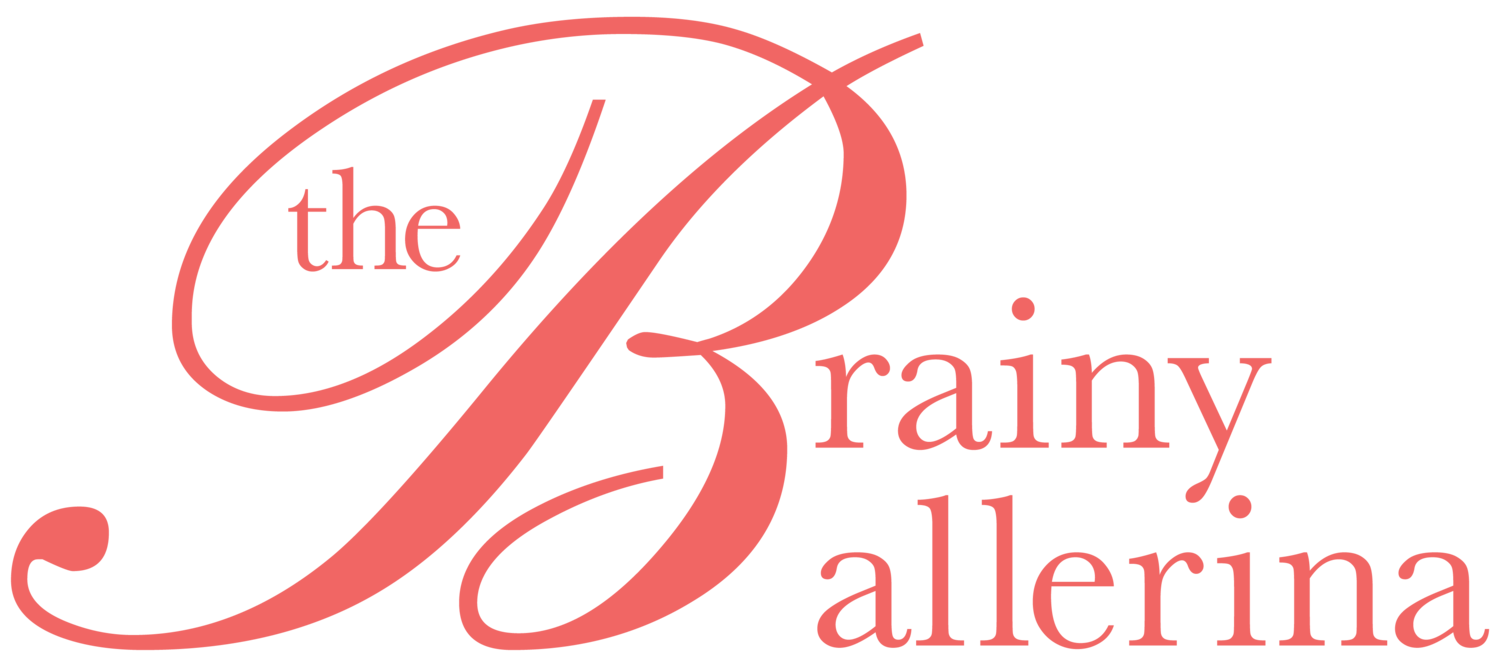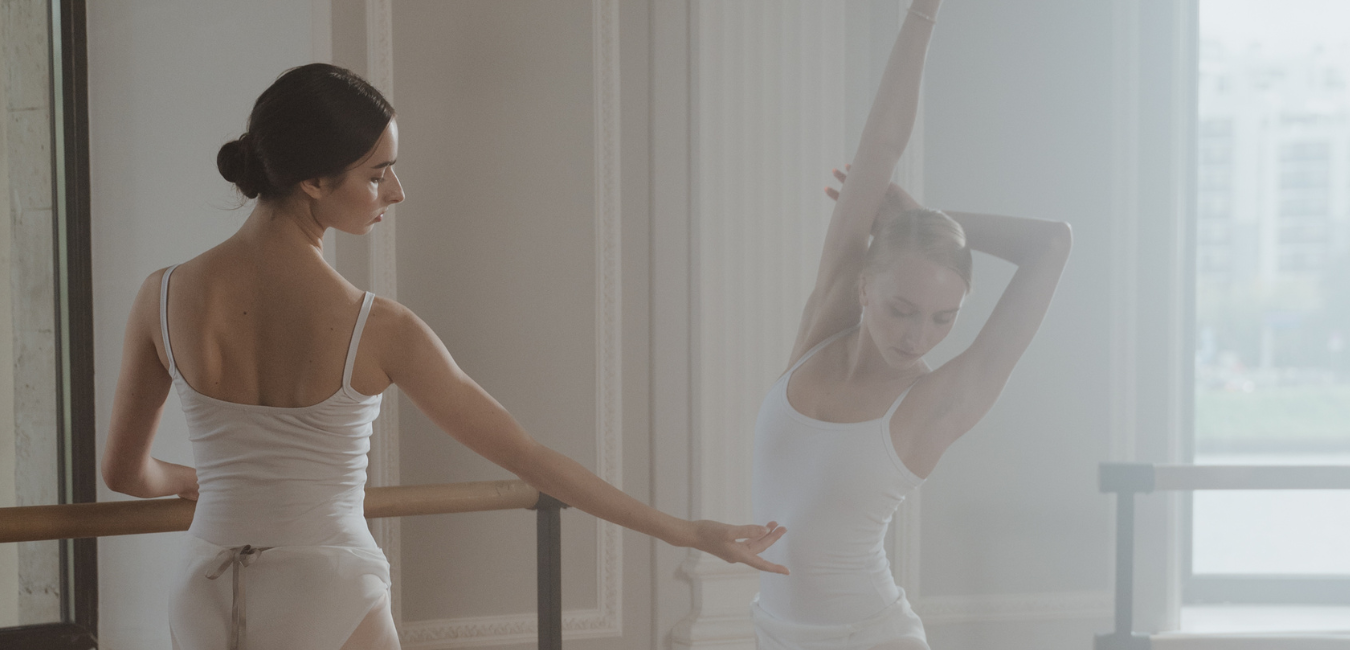From Insecurity to Inspiration: Navigating the Comparison Game in Dance
Comparison.
We’ve all experienced it. It creeps in during class, auditions, casting decisions, and especially on social media. As dancers, we're constantly sizing ourselves up against others - wondering if we're good enough, questioning if we’re behind and trying to figure out where we fit in.
In a pre-professional dance setting, those feelings can intensify fast. So let’s explore why comparison shows up and how you can work with it, not against it.
Why Comparison Happens
First, I want you to know: comparison is completely normal. It's wired into our brains. Historically, it was a survival mechanism. We evolved in groups, and comparison helped us figure out where we stood and how to adapt.
You've probably heard the saying: "You don't have to outrun the lion, just the person next to you." That's comparison. It's a built-in instinct to assess whether we are stronger, faster, smarter - not for vanity, but so that we can literally survive. Our brains are still wired that way, even though most of us no longer face life-or-death scenarios in our daily lives.
We also have a deep-rooted need to fit in. From early childhood we observe others to figure out what is "normal," what gets praise, and what leads to acceptance or rejection. As young dancers, we look to those around us not just to learn technique, but to understand how to belong. We internalize who gets attention from teachers, who earns solos, and who seems to be admired. These cues shape our understanding of worth and influence how we behave in class, what we strive for, and even how we view ourselves.
Why It Hits Dancers Harder
Comparison is part of being human, but in ballet, it's amplified. We spend our days in front of mirrors, constantly receiving corrections and feedback in real time and often in front of our peers. Every detail matters: timing, lines, expression, coordination. That level of scrutiny can heighten our awareness of how we measure up, not just technically but artistically and emotionally.
In a corporate job, you're not getting 100 notes a day about how to improve. But in a dance company? That's an average day. You might hear dozens of corrections before lunch, and your brain naturally starts tallying. Are they getting more praise? Am I getting overlooked? Why are they constantly correcting me?
Even though we know corrections are a gift, all the feedback can start to feel like judgment, and the mirrors can start to feel like magnifying glasses. This can turn an environment meant for growth into one that feels like a constant competition. And that gets exhausting. You begin second-guessing your abilities, your place in the company or class, and your potential.
So What Do We Do?
We may not be able to turn off the comparison switch completely, but we can reframe it. Here are some tools I use that have helped me through my dance career:
1. Build Awareness
The first step to shifting your relationship with comparison is to notice it. It often hides behind subtle thoughts: "She's better at that than I am" or "I'll never dance like that". Start tuning into when and where it shows up for you.
Is it during a specific class? A certain teacher's feedback? Scrolling social media at night? When it happens, pause and name it. Say to yourself, "This is comparison. My brain is trying to protect me." That recognition alone creates space between you and the feeling—and in that space, you can choose how to respond instead of reacting on autopilot.
2. Curate Your Social Media
Social media is a comparison machine. You’re seeing highlights, perfectly framed shots, and curated moments that often leave out the hard stuff. If certain accounts trigger self-doubt or make you question your progress, it's okay to step back and mute or unfollow. Your mental health matters more than keeping up. Instead, seek out dancers and creators who show both the beauty and the challenges of the journey. Your feed should reflect what supports your growth, not what undermines it.
3. Flip the Script
Instead of letting comparison lead to envy or self-criticism, try turning it into curiosity. If another dancer has beautiful musicality, ask yourself why it moves you. What can you learn from watching them? What specific qualities do they bring to their movement that you can study and apply? Think of yourself as a collector, pulling together bits of inspiration from the people around you. This not only redirects your mindset but also turns comparison into a tool for artistic growth.
4. Know Your Strengths
Every dancer has something that sets them apart. Maybe it’s your stage presence, your speed, your creativity, or the way you connect emotionally to music. Identify your strengths and own them. Write them down. Reflect on when others have complimented you or when you’ve felt most in your element. These are your anchors in a sea of comparison. When you know what you bring to the table, you’re less likely to be shaken by comparison.
5. Run Your Own Race
It’s tempting to measure your progress against someone else’s timeline - especially in a field where contracts, casting, and roles can seem like the ultimate markers of success. But your journey is uniquely yours. What if you trusted that your path is unfolding exactly as it should? Someone else’s win doesn’t take away your potential. In fact, it's proof that success is happening all around you, and it can happen for you, too. Stay focused on your goals, your growth, and what genuinely fulfills you.
Journal Prompts to Reframe Comparison
If you notice comparison bubbling up, use these prompts to dig deeper:
When I notice myself comparing, I tend to feel...
The comparison I’m feeling most lately is...
What need or desire is underneath that comparison?
How can I turn this comparison into inspiration?
What makes my path and dancing meaningful?
Your brain is wired to compare. It doesn’t mean something is wrong with you. You are in a career that asks you to measure and evaluate constantly. Just remember: noticing someone else's strength doesn't mean you're lacking. You are growing at your own pace.
So the next time you catch yourself spiraling into comparison, pause. Ask: What do I really want for me? And then take one small step in that direction.
Your path is yours—and nobody can do it quite like you.
Meet the Author
Caitlin Sloan is a Dance Educator and Career Mentor based in Madison, WI.
Caitlin received her Bachelor of Arts in Dance from Grand Valley State University and Graduate Certificate in Nonprofit Management from the University of Missouri.
She danced professionally for nine years with companies including Ballet Tucson and Missouri Contemporary Ballet (now Mareck Dance). Caitlin has taught at schools all over the Midwest, most notably serving as Director of The School of Missouri Contemporary Ballet and Youth Company Director for Central Indiana Dance Ensemble. She is currently on faculty at the School of Madison Ballet.
Caitlin founded The Brainy Ballerina® in 2019, a virtual resource providing support and guidance for aspiring ballet dancers. Follow @thebrainyballerina on Instagram for your daily dose of dance career guidance and inspiration.




